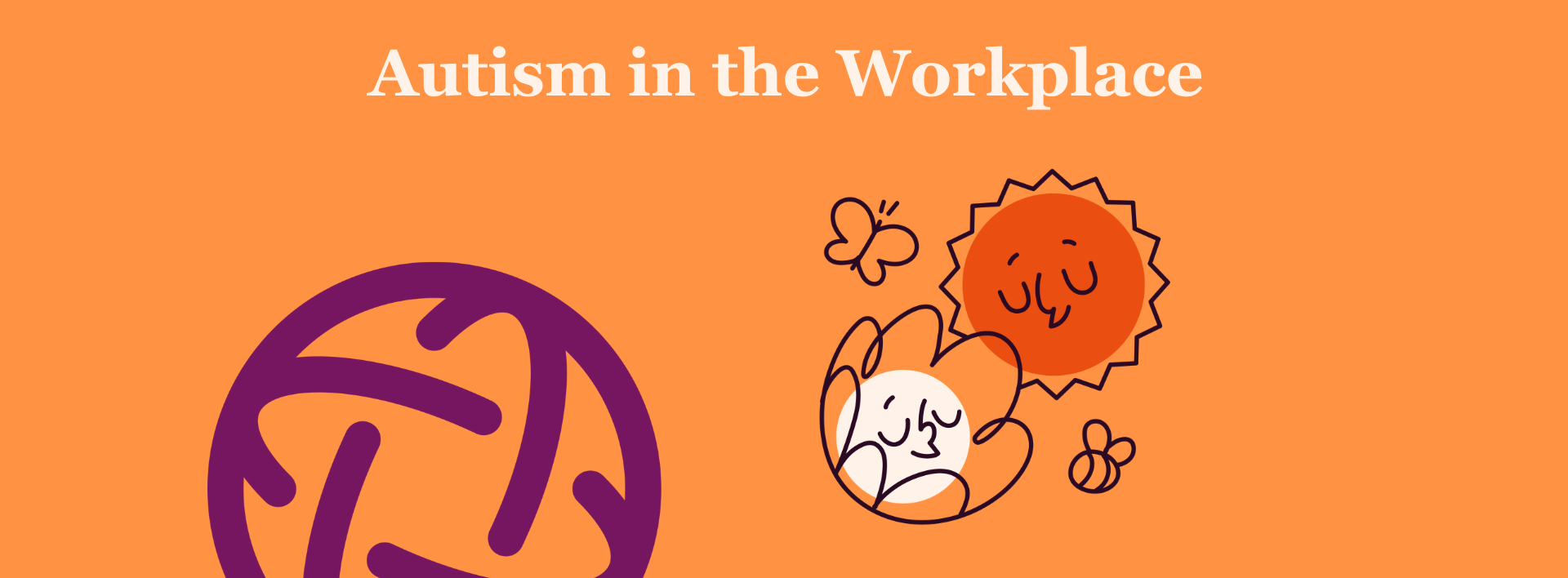Diversity and inclusivity have become key priorities for employers in recent years and neurodiversity is just one area receiving a greater focus. Many assumptions surround the capabilities of autistic people, especially in the workplace; as a result, stereotypes and a lack of understanding of the skills of many autistic people can influence their employment and career opportunities. Neil Ferguson, Managing Director, Gravitate HR and Tina Munro, HR Consultant, Gravitate HR recently attended Autism Works! – a very informative three-part training session run by IntoWork. This blog is intended to share some of our learning from those sessions.
What is Autism?
Autism creates neurological differences, it is a lifelong condition which frequently co-occurs with other conditions such as ADHD, dyslexia, face blindness, anxiety and depression. It is worth emphasising that autistic people are as different from one another as non-autistic people. Some key facts about autism are:
- Autism affects 1 in 100 people in the UK – that is around 700,000 autistic people
- 77% of autistic people want to work
- 60% of employers are concerned about getting support wrong or not knowing where to get support
So raising awareness about autism and how to create an environment where every employee can be the best they can be is clearly important.
What difficulties can employees with autism have at work?
- Sensory Overload:The workplace can be overwhelming due to noise, bright lights or colours and crowded spaces. Sensory overload can lead to increased stress and reduced productivity.
- Communication Difficulties: employees with autism may experience challenges in understanding non-literal language, unwritten rules, humour, facial expression or body language.
- Social Interactions:Participating in social interactions, team-building activities, and networking events may be challenging for people with autism, leading to feelings of isolation and anxiety.
- Routine and Change: employees with autism will struggle with sudden changes in tasks or routines finding this disruptive and distressing.
- Executive Functioning: Some individuals may struggle with time management, organisation, and prioritising tasks, affecting their ability to meet deadlines and manage workloads effectively.
What reasonable adjustments might help support an employee with autism?
When considering any reasonable adjustments, these should be discussed and treated on an individual basis. It is important for an employer to think about the working environment and how it and other aspects of the employee life cycle can impact autistic employees. Sometimes autistic people feel emotionally and/or physically overwhelmed by the effort of fitting-in and some simple things can help. Following are adjustments that may be considered:
- Buddying or Mentoring: providing support whether from a fellow colleague or manager to answer questions and help to navigate any day to day difficulties.
- Flexible Working Arrangements: offering flexible work hours or remote work options can help employees manage their sensory needs and maintain a balanced routine.
- Sensory-Friendly Workspaces: Creating quiet spaces, reducing harsh lighting, and providing noise-cancellation headphones can reduce sensory overload.
- Clear Communication Guidelines: Encourage clear and direct communication within the workplace, provide written instructions and avoid using vague, ambiguous language and jargon.
- Structured Tasks and Checklists: Breaking down complex tasks into smaller steps and providing clear checklists, plans and structures can assist colleagues in managing their workload efficiently.
- Autism Awareness Training: Educate employees about autism and its unique challenges, fostering a more understanding and supportive atmosphere.
What kind of work is best suited to an individual with autism?
Within a positive working environment and often with minimal adjustments, there will be job roles where an autistic person will succeed, if not excel, especially where the role involves any of the following characteristics:
- Attention to detail – thoroughness, accuracy
- Deep focus – concentration, freedom from distraction
- Observational & visual skills – Fact finding, Detail focussed, Visual recall
- Absorb and retain facts – Excellent long term memory, superior recall
- Expertise – In-depth knowledge
- Methodical approach – Analytical, pattern spotting
- Creativity & novel approach – Unique thought process, innovative solutions
- Tenacity & resilience – Determination, challenge opinions
- Accepting of difference – Less likely to judge others, may question norms
- Integrity – Honesty, loyalty, commitment
No matter what your company does, there will be autistic people who may be a great fit with the business, especially when the environment is inclusive and allows them to thrive in a role suited to their capabilities.
If you have any questions relating to this topic please get in touch with us at Gravitate HR – tina@gravitatehr.co.uk, Tel: (+44) 141 459 7458
Additional help and support can be found at the following websites:
Scottish Government #Different Minds campaign
Autistic Self Advocacy Network “Welcome to the Autistic Community”
